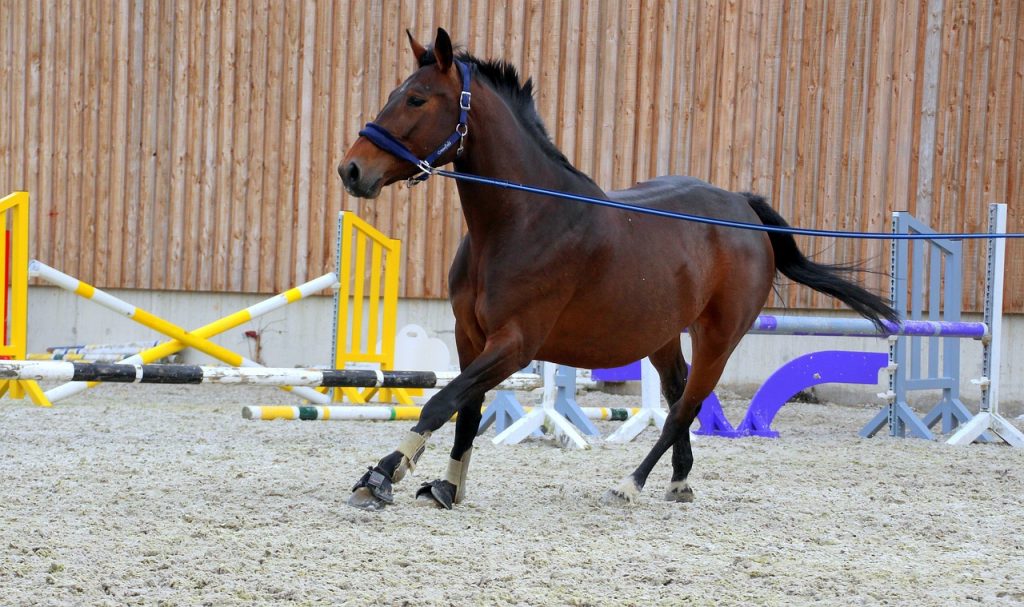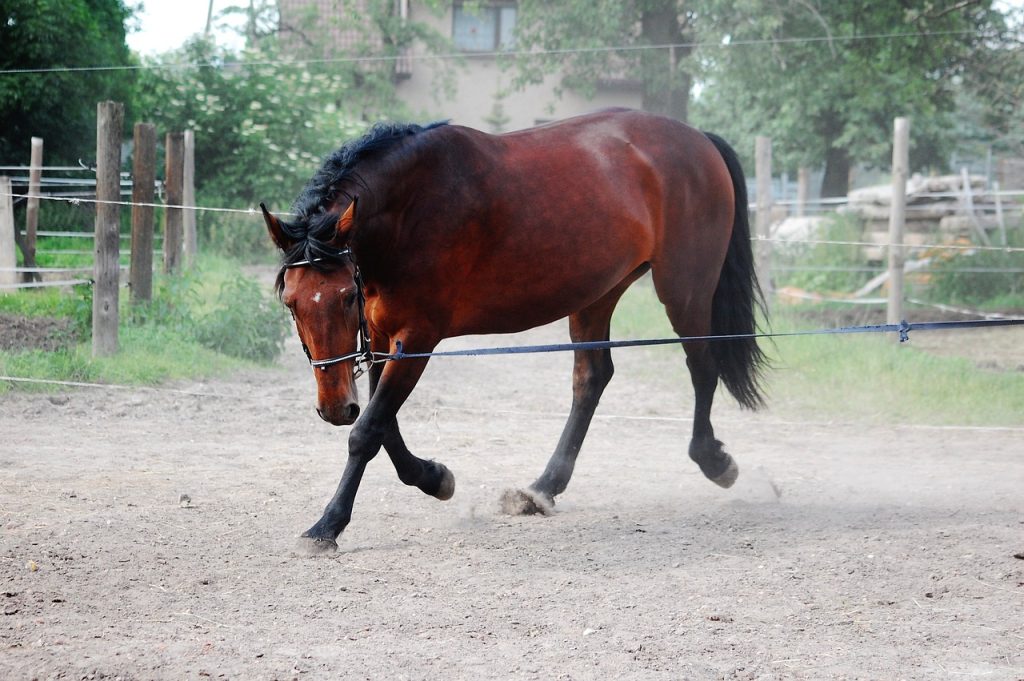Striving for excellence in horse training? Your journey begins not just in the training arena, but also at the feeding trough. The piece titled “Essential Horse Feeding Tips for Better Training Results” provides valuable insights into proper horse feeding and its significant correlation with successful horse training. It’s a fact that nutrition plays an essential role in your horse’s overall health, performance, and cooperation during sessions. Mastering the art of feeding can strengthen the bond and trust between you and your equine partner, setting the stage for more effective and efficient training sessions. This article extends beyond typical training fundamentals, shedding light on essential feeding tips for the ultimate synergy between nourishment and training performance.

This image is property of pixabay.com.
Understanding Your Horse’s Nutritional Needs
As a horse owner or caretaker, it’s crucial for you to understand the nutritional necessities of your horse. Just like humans, horses also need a balanced diet to stay healthy and productive.
Know the essential nutrients a horse needs
A balanced diet for a horse typically includes proteins, fat, vitamins, minerals, and water. These are necessary for bodily functions such as growth, reproduction, and maintenance of overall health. Hay, grain, concentrates, and pasture grass are common sources of these essential nutrients.
Different nutritional needs at different life stages
Your horse’s nutritional needs can change drastically throughout its life. For example, foals need more protein for growth, while a mature horse might need more fiber for proper digestion. Pregnant and lactating mares have unique dietary needs as well for the health of the foal.
Matching feeding with your horse’s workload
Depending on how much physical work your horse does, their nutritional needs can vary too. If it’s a working horse or an active racehorse, it might need more feed and a higher caloric intake to support its activities. On the contrast, a horse that mostly rests or does a low level of physical work might not need as many calories.
Importance of Regular Feeding Schedules
Regular feeding schedules matter as much as the feed itself in maintaining your horse’s good health.
Disadvantages of irregular feeding schedules
Feeding your horse irregularly can cause significant health issues. It can lead to gastric ulcers, colic, drastic weight changes, and other digestive problems.
Creating a consistent feeding routine
Consistency in feeding is key. Horses are creatures of routine, and they typically eat small amounts throughout the day. Try to feed your horse at the same times each day and divide the daily feed into multiple small meals rather than one or two large ones.
Dealing with changes in feeding schedules
Sometimes it’s unavoidable to change your horse’s feeding schedule, such as during travel or competitions. In these cases, do your best to make changes gradually to avoid shocking their system.
Quality of Horse Feed
Paying attention to the quality of the feed you give is essential to ensure your horse’s health.
Different types of horse feeds
Different breeds and types of horses may require different feeds. For example, racehorses might benefit from a high-energy feed, while hardworking farm horses might need a high-fiber feed.
Checking for freshness and quality
Always check the freshness of the feed. Avoid moldy or stale feed as this can lead to health problems. It’s typically better to buy less feed more often rather than storing large quantities for long periods.
General guide for choosing high quality feeds
When choosing horse feeds, opt for products that clearly list their ingredients and nutritional value. Make sure the feed includes all the necessary nutrients and is appropriate for your horse’s age, breed, lifestyle, and health status.
Feeding Methods and Techniques
The way you feed your horse is just as important as what you feed them.
How often to feed a horse
Ideally, you should be feeding your horse little and often. Three to four small feeds a day is usually considered optimal for a horse’s digestive system.
Portion sizes based on weight and age
Feeding amounts depend on your horse’s weight, age, and workload. As a general rule, a horse should eat about 1.5-2% of its body weight in feed (including forage) per day.
Best feeding techniques for training horses
If you’re training your horse, consider feeding it about an hour before the training session begins. After a strenuous workout, wait for about one hour before feeding again to prevent any digestive discomfort.

This image is property of pixabay.com.
Understanding and Preventing Nutrition-Related Diseases
Proper nutritional management can help you prevent several health conditions in horses.
Common nutrition-related diseases in horses
Nutrition-related health problems in horses can range from obesity and equine metabolic syndrome to deficiencies in vitamins and minerals causing conditions like rickets or anemia.
How proper feeding can prevent these diseases
A balanced diet helps in maintaining your horse’s optimal weight and supports its immune system, reducing the risk of many diseases. Ensure you provide all essential nutrients, and never overfeed or underfeed them.
Signs of nutrient deficiencies
Watch out for signs like dull coat, weight loss, decreased productivity, or changes in behavior, which could suggest nutritional deficiencies. Consult your vet if you have any concerns about your horse’s health.
Importance of Hydration
Water is just as crucial for your horse’s diet as food.
How much water a horse needs daily
On average, a horse needs about 5-10 gallons of water daily, but this can vary greatly depending on the weather, their diet, and the level of exertion.
Ensuring your horse stays hydrated during training
Especially during training or a hot day, it’s important to ensure your horse drinks enough water. Always make fresh, clean water easily accessible.
Water sources and quality for horses
Whether it’s from a trough or natural sources like a pond, water for your horse should be clean and free from contaminants. Regularly clean water troughs to avoid algae or bacterial buildup.

This image is property of pixabay.com.
Effects of Overfeeding and Underfeeding
Both overfeeding and underfeeding come with potential health issues.
Health risks associated with overfeeding
Overfeeding could lead to obesity and the associated health issues like heart disease, insulin resistance, and joint problems.
Problems caused by underfeeding
On the other hand, underfeeding causes poor growth, weight loss, and a weakened immune system.
Maintaining a balanced diet for your horse
For a balanced diet, monitor your horse’s condition carefully, and adjust the diet based on its needs as recommended by your veterinarian.
Supplements and Their Role in Horse Nutrition
While a balanced diet should provide all necessary nutrients, some horses might benefit from supplemental feed.
Types of supplements that benefit horses
Supplements can provide extra energy, essential amino acids, vitamins, minerals, or probiotics depending on the horse’s needs.
When to consider adding supplements to your horse’s diet
If your horse is working hard, recovering from an illness, or in a particular life stage like old age or pregnancy, it might need supplements. Always consult with a vet before adding any supplements to your horse’s feed.
Guidelines for safely introducing new supplements
When introducing a supplement, do it gradually to avoid potential digestive issues. Keep track of its effects on the horse’s health and behavior.
Feeding Considerations for Special Needs Horses
Some horses may have unique dietary needs due to their health conditions, age, or reproductive status.
Feed options for older horses
For older horses, consider feeds that are easy to chew and digest, and provide extra nutrients for joint health and immune support.
Feeding horses with medical conditions
If your horse has a medical condition like diabetes, cushing’s disease, or allergies, you might need to customize its diet under the guidance of a vet.
Diet modifications for pregnant or lactating mares
Pregnant and lactating mares need additional calories, protein, vitamins, and minerals to support the growth and health of the foal.
The Role of Forage in Horse Nutrition
Forage plays a vital role in a horse’s diet. It not only provides nutrients but also is crucial for their digestive health.
Types of forage suitable for horses
Pasture grass, hay, straw, and chaff are types of forage ideal for horses. The best type of hay for horses is often a mix of grasses like Timothy, brome, or orchard grass.
Benefits of including forage in your horse’s diet
Forage keeps the horse’s digestive process running smoothly, provides essential fiber, and helps in controlling their weight. It also satiates the horse, reducing the risk of overeating.
Forage alternatives during scarcity
If there’s a scarcity of hay or grass, consider alternatives such as hay cubes, beet pulp, or bran. Always ensure any dietary changes are made gradually to avoid upsetting your horse’s digestive system.
Being an effective horse caretaker involves understanding their nutritional needs and tailoring their diet appropriately based on various factors. As always, compassion, observation, and timely consultation with a vet can go a long way towards maintaining your horse’s overall health.
